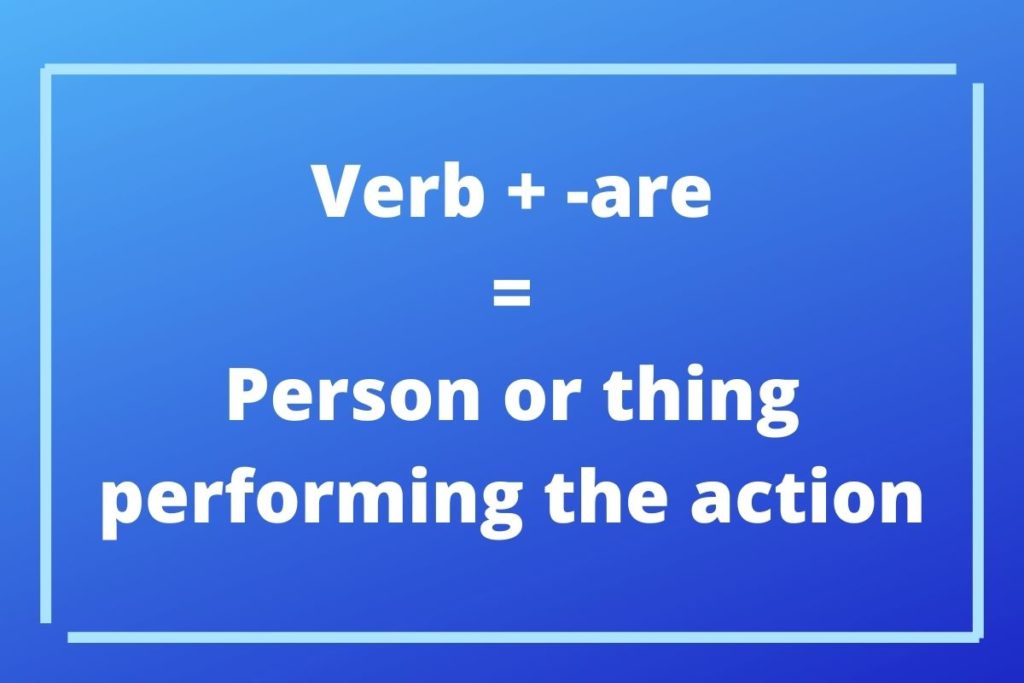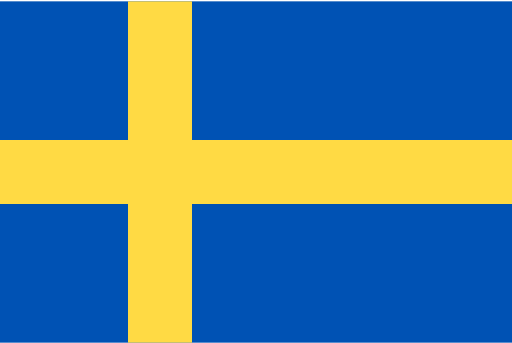The breakdown
Hey all! I’m back with another Swedish word breakdown post today. This one will be a bit shorter and lighter on history, but I’ll make up for it next time with a dive into French influences on Swedish, and how to recognize what language a Swedish word likely comes from. Someone brought it up in the comments of the last post, and once I started researching it turns out there is way more French influence than I expected! Stay tuned for that, but today I want to be a little more practical and talk about how knowing some basic Swedish verbs, you can start to recognize common suffix patterns and expand your vocabulary without having to memorize entire lists of new words.
Modifying verbs into nouns

You can often add the suffix “-are” to verbs to show that you’re talking about a person or thing who performs an action. In my last post I mentioned how based on the verb “skriva” (to write) you can make “skrivare” (printer), using this verb+-are construction. You literally can translate “printer” as “the one that writes”. It’s important to note that not all words you see with this “-are” ending are performing this function, it can also be used with adjectives to compare things (for example, kylig – cold, kyligare – colder). But even in that sense it works much the same as adding -er in English. You will notice that the “a” at the end of the verb stem will be replaced by the “a” in “-are”.
Verb Examples
- Köpare – Buyer/purchaser
- Att Köpa – to buy/purchase
- -are (the one who performs the action)
- Köpare = The one that purchases
- Deltagare – Participant
- Del (part)
- Tag (take)
- -are (the one performing the action)
- Deltagare = The one that takes part.
- Ledare – Leader
- Att Leda – To lead
- -are (the one performing the action)
- Ledare = The one that leads.
Notes on “köpa”, this is actually related to “cheap” in English, rather than “shop” as I would have expected. Both köpa and cheap seem to ultimately come from Latin “caupo” (tradesman, innkeeper, or shopkeeper). In Old English this became “ceap” (a trade, bargain, or commodity).
The English sense of “shop” as a verb seems to have come from the noun form, from the Proto-Germanic “skup” (a shed, a small freestanding structure). After that point it’s tricky to trace, but there is a sense of merchants selling things from stalls or booths, and may have borrowed from the Old/Middle French “échoppe” (a booth, stall, small shop). I said this post would be light on history, but I couldn’t resist a little bit.
Followup
Obviously, you do have to know a bit of context to be able to tell when an “-are” word is making a verb into a noun rather than comparing the degree of something, but it’s a good clue as to what’s going on.
Now here’s a little teaser into the world of French influence on the language. I noticed a few words not fitting the pattern, such as:
- Ambassadör – Ambassador
- Chaufför – Chauffeur
- Entreprenör – Entrepreneur
- Inspektör – Inspector
Notice that when translated to English, some of these words have adopted the -or suffix, but some retain the original French -eur suffix.
Words like these are a clue to the amount of words in the Swedish language that were borrowed from French, at the same time that English borrowed them. By studying the French history of many English words, you can actually clue yourself in to a large list of Swedish vocabulary you may not have realized existed. I’ll save the deeper exploration of these for the next post, as I’ll need to brush up a bit more on my French history before being able to properly make some of these connections.
I hope this was informative, and once again I’m no professional linguist, so please alert me of any mistakes, misspellings, or add in bits of extra history I may have missed. Thanks for reading!
Vocabulary Table
| Kylig | Cold |
| Kyligare | Colder |
| Köpare | Buyer/Purchaser (shopper) |
| Att Köpa | To Buy |
| Deltagare | Participant |
| Del | Part |
| Tag | Take |
| Ledare | Leader |
| Att Leda | To Lead |

1 thought on “Swedish Verbs – Turning Actions into Titles”